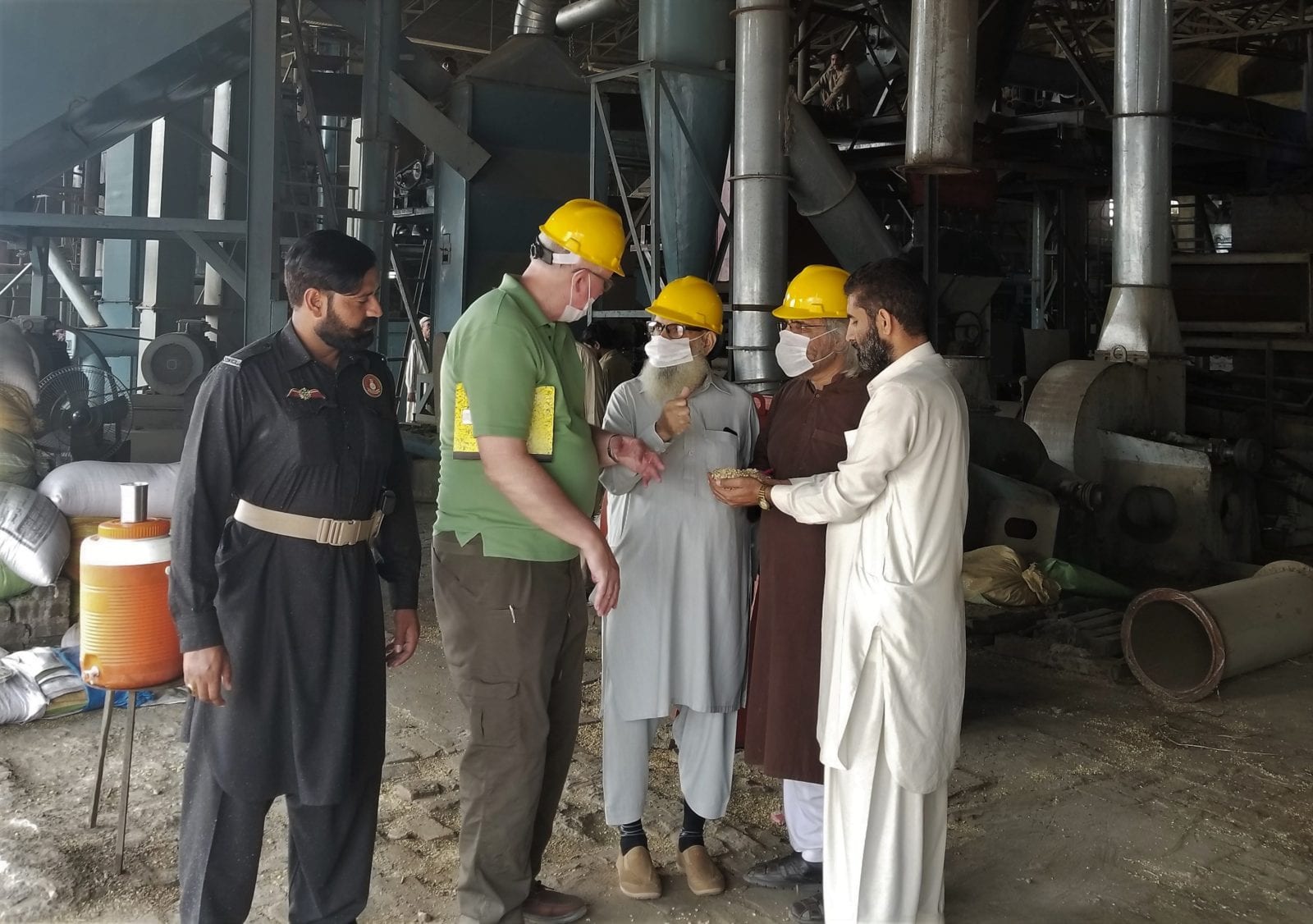Pakistani Soy Crushers Benefit from USSEC Training
- Category:
- General News

USSEC recently provided technical assistance for Pakistani soy crushers who prefer U.S. soybeans.
Soy crushing expert Greg Lofstedt and USSEC consultant – Pakistan R.S.N. Janjua visited six crushing plants situated in various locations in Pakistan’s Punjab province to provide technical assistance to help improve soybean meal and oil produced using U.S. soybeans. Mr. Lofstedt inspected key soy crushing plants and audited their manufacturing processes by talking to the crush plant owners and the production staff. He identified various processes that required improvements, conveying them to the crush plant audiences that requested implementation. Some key areas where he added value were: increasing the protein content of meal; increasing yield of soybean meal in a crushing operation; reducing hexane losses; taking control on moisture levels in the meal; and, more importantly, adopting safety and environmental issues in the plants.
The Pakistani crushing industry historically crushed canola and sunflower seed until 2015, after which the soybean imports into the country began to increase. The manufacturing system used for crushing oil seeds in Pakistan was historically focused on “Crush for Oil” because oil was considered a primary product. Soybean meal was always viewed as a by-product. USSEC has identified that a strategy is required to help the industry recognize soybean meal as a co-product instead of viewing it as a by-product, especially with quality specifications, is being demanded by the poultry industry. A change in the manufacturing processes is that soybean meal is being advocated by USSEC as a tactic to emphasize and transform soy crushers into “Crush for Meal” concept.
Pakistani crushers appreciated the initiatives and commitment by the U.S. Soy industry and USSEC to help improve best practices in soybean processing. One of S.S. Mills’ staff members said that a U.S. crush plant expert had never been in their facility and that they have limited capabilities to access knowledge on advanced processing techniques of soy.
Tariq Sufi, chairman of All Pakistan Solvent Extractor Association, was appreciative of the technical support provided by USSEC for the betterment of the Pakistan soybean crushing industry. The mission also included visits to new upcoming crush plants, which wanted to convert from crushing canola to soybeans, and plants being installed by Pakistan’s large poultry feed producers (50,000 metric tons (MT) / month capacity) as a part of their backward integration business plans.
In 2016/17, Pakistan imported 630 thousand metric tons (TMT) of U.S. soybeans. By March 2018, this number has grown by 48 percent to 930 TMT for 2017/18. With five more months to complete the current MY, it is believed that Pakistani customers will continue to rely on U.S soybeans, especially due to consistent quality and moisture levels, among various other factors that contribute to this preference.



